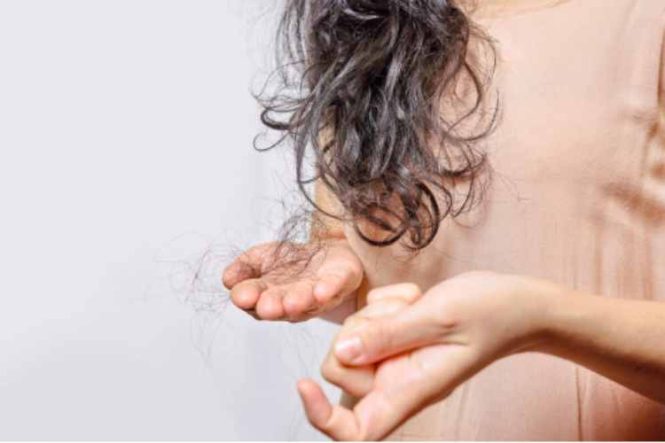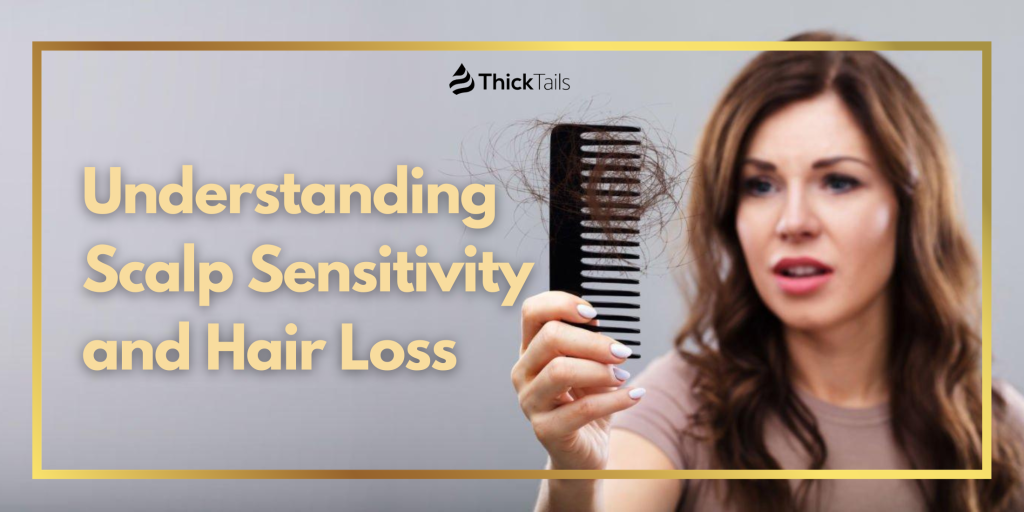

Scalp sensitivity can significantly impact hair loss, and understanding this connection is crucial for managing hair health effectively. Imagine experiencing constant discomfort and itching on your scalp, coupled with thinning hair. This common problem affects many and the discomfort is often debilitating. This article delves deep into the discomfort of scalp sensitivity, exploring its link to hair loss. We’ll explore the causes, symptoms, and effective management strategies to help you reclaim a healthy head of hair. This guide will be structured to cover everything from the basics to advanced concepts, empowering you with the knowledge you need for sustainable hair care.
Understanding the Connection Between Scalp Sensitivity and Hair Loss
The Underlying Mechanisms
Scalp sensitivity often precedes or accompanies hair loss, indicating an underlying issue that needs addressing. Various factors, like allergic reactions, hormonal imbalances, and stress, can contribute to inflammation and irritation on the scalp, making it uncomfortable. This chronic inflammation can, in turn, damage the hair follicles, interrupting the natural hair growth cycle and leading to hair loss. This connection is not always immediate, and the underlying mechanisms can be complex. For instance, certain medications might cause scalp reactions. In many cases, the inflammation manifests through noticeable symptoms like redness, itching, and dryness. This can cause significant discomfort and stress, leading to hair loss.
Identifying the Triggering Factors
Numerous factors can trigger or exacerbate scalp sensitivity. Allergies to certain ingredients in hair products, or dietary factors like vitamin deficiencies, can play a role. In some cases, underlying medical conditions like psoriasis or eczema can be the culprit. Stress and hormonal fluctuations are also frequently cited triggers. Understanding the triggers is often crucial to managing scalp sensitivity effectively. This understanding will also lead to a more effective treatment strategy. For example, if dietary deficiencies are identified, dietary adjustments can provide substantial relief.
Common Symptoms and Their Implications
Recognizing the Signs
Recognizing the signs of scalp sensitivity is essential for early intervention. Symptoms may vary from person to person but often include persistent itching, redness, burning, or dryness of the scalp. Scalp flaking, or dandruff, can also be a significant indicator. Constant scratching can lead to further damage, both to the scalp and to the hair follicles, accelerating hair loss in the process.
Connecting Symptoms to Hair Loss
These symptoms often coincide with thinning hair or hair loss in affected areas. The irritation and inflammation can disrupt the hair growth cycle, causing follicles to become weak and damaged, affecting hair regrowth and leading to progressive hair loss. It is important to consult a professional for proper diagnosis and treatment plan. It is also vital to monitor for changes in scalp conditions and hair loss patterns, especially if symptoms persist or worsen.
Effective Management Strategies
Gentle Hair Care Practices
Adopting gentle hair care practices is paramount to managing scalp sensitivity. Avoid harsh shampoos, conditioners, and styling products containing strong chemicals. Look for products labeled as “sensitive skin” or “gentle” formulations. Choose shampoos and conditioners free of sulfates, parabens, and other potentially irritating ingredients. Use lukewarm or cool water when washing hair, as hot water can further dry and irritate the scalp. Avoid tight hairstyles that put pressure on the scalp, promoting discomfort and potentially leading to hair loss.
Diet and Lifestyle Modifications
Diet plays a vital role in overall health, including scalp health. Incorporating a balanced diet rich in vitamins and minerals can promote healthy hair growth. Managing stress through relaxation techniques like yoga or meditation is important in minimizing the impact of stress on the scalp and overall health. Consider dietary supplements to address any identified deficiencies. For example, if a lack of iron or zinc is identified, taking supplements can address the deficiency.
Exploring Treatments and Remedies
Over-the-Counter Solutions
Various over-the-counter products can address minor scalp sensitivity and associated hair loss. Look for shampoos and conditioners specifically formulated for sensitive scalps. These products often contain soothing ingredients like aloe vera or chamomile. In cases of mild dandruff or flaking, topical anti-dandruff shampoos can provide relief. It is essential to understand that these remedies may not be sufficient in cases of severe scalp sensitivity or prolonged hair loss.
Professional Interventions
If over-the-counter solutions don’t alleviate the issue, consultation with a dermatologist or trichologist is crucial. They can identify underlying medical conditions or suggest more targeted treatments, such as specialized shampoos or medicated lotions, and tailor a personalized treatment plan. This professional input can differentiate potential causes, including underlying medical conditions. For instance, certain medical conditions can cause a unique pattern of hair loss.
The Role of Stress and Hormones
Stress-Induced Hair Loss
Chronic stress can significantly impact the scalp and contribute to hair loss. Stress hormones can disrupt the natural hair growth cycle, leading to temporary or even permanent hair thinning. Managing stress levels through relaxation techniques and lifestyle adjustments, such as exercise, proper sleep, and mindfulness practices, is vital for promoting healthy hair growth.
Hormonal Influences on Hair Loss
Hormonal fluctuations can also affect scalp health and, consequently, hair loss. Changes during pregnancy, menopause, or puberty might disrupt the delicate balance of hormones in the body. Consulting a healthcare professional for appropriate hormone testing can provide tailored insights into the situation. Hormonal imbalances can be addressed with the guidance of a medical professional.
The most common causes of scalp sensitivity leading to hair loss include allergic reactions to hair products or specific ingredients in hair care. In addition, stress, hormonal changes, certain medical conditions, and dietary deficiencies can also contribute to the issue. Identifying the root cause is crucial for targeted treatment.
How can I tell if my hair loss is due to scalp sensitivity?
Often, scalp sensitivity is accompanied by symptoms like itching, redness, dryness, or flaking. A combination of these signs with hair thinning suggests a potential link between the two. If you observe these symptoms consistently, it’s essential to consult with a healthcare professional or trichologist to determine the exact cause of your hair loss.
Are there any long-term solutions for managing scalp sensitivity and hair loss?
What are the most common causes of scalp sensitivity leading to hair loss?
In conclusion, scalp sensitivity and hair loss are intricately linked, and understanding this connection is crucial for effective management. Addressing underlying scalp conditions, adopting gentle hair care routines, and consulting with a dermatologist or trichologist can significantly improve hair health and reduce hair loss. This comprehensive guide has provided valuable insights, helping you navigate the complexities of scalp sensitivity and its impact on your hair. Now, you’re empowered to take proactive steps towards a healthier, fuller head of hair. Learn more about personalized hair loss solutions today!